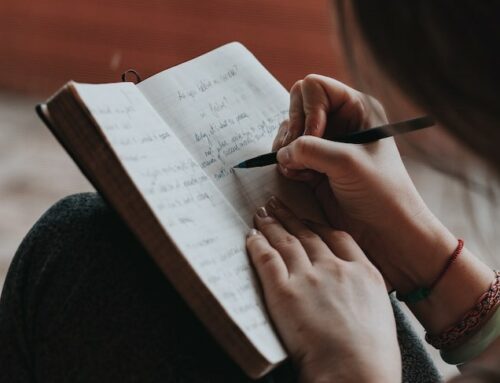CPTSD, PTSD and Trauma: Learning the Mindfulness of Observing (and 5 Tips for Observing)
February 23, 2023
One of the most useful things I’ve learned during trauma recovery has been to observe. It’s the simplest idea, yet one of the more difficult things to do. It’s when you remove yourself from your emotions, from your feelings, from your past, from the future, and simply observe the moment you are in. Be present. Just be.
Observing means engaging your senses. Grounding yourself. Noticing things around you. Focusing on your physical environment. Not judging. Not having any expectations. Not thinking about what happened in the past or what will happen next. And sitting with yourself.
Learning to observe hasn’t been easy, but like anything, the more I practice it, the easier it comes to me. I’ve learned that I can observe anywhere no matter what situation I find myself in. And I find that the more I do it, the more I’m inclined to remember to do it when I need to.
It’s easy to observe when you’re thinking about it. When you’re trying to be mindful. You can look outside and see the blue sky. The green trees. The white snow. You can smell the candle you’re burning. You can feel the soft blanket on your lap.
Observing when you really need to, however, is a tricky thing to master. For example, I was having a tense conversation with my husband the other day while we were sitting outside. Where there were plenty of things to observe, but for the first half of our discussion, I forgot to observe, leaving me feeling helpless. Depressed. Then, I remembered to observe. I noticed the tall trees. The color of the grass where the sun was shining. The smell of the damp winter air. The sound of the birds chirping above me. And I felt more centered. More present. Less tense. And I was no longer depressed.
Observing gets us out of our heads and into our bodies. It’s accessible at any time. And it’s a great way to regroup and reset. So regardless of the obstacles you face, remember to observe. Here are some tips for doing so:
- Engage all five senses. Observe at least one thing for each sense. You can repeat a sense after you’ve captured something for all five.
- Count the things you observe. Sometimes, if there’s not much to observe with my senses, I’ll count. I’ll count ceiling tiles, floor boards, things that are red, etc. You can also count the number of things you observe for each sense. For example, five things you see, five things you touch, etc.
- Write down what you observe. You can write on paper or keep a document on your computer or phone. Writing will help you ground even more, and while you’re at it, consider writing about how you feel.
- Go outside and observe. Nature is wonderful for the senses. And it’s grounding too. I try to get outside a couple times a week. Regardless of the weather. And sometimes even in spite of the weather—like how there’s something beautiful about the smell of a rainstorm.
- Observe no matter how you feel. Observe when you feel down, depressed, bored, angry, etc. But also when you feel overwhelmed, overjoyed, etc. Try to observe your feelings when they come up without agenda or judgment. Just observe.
No matter the situation you find yourself in, if you’re feeling off in any way, remember to take in your surroundings. To be in the present moment. And to observe.
Subscribe to my website | Like me on Facebook | Follow me on Twitter | Follow me on Instagram
Photo by Nikolay Draganov










